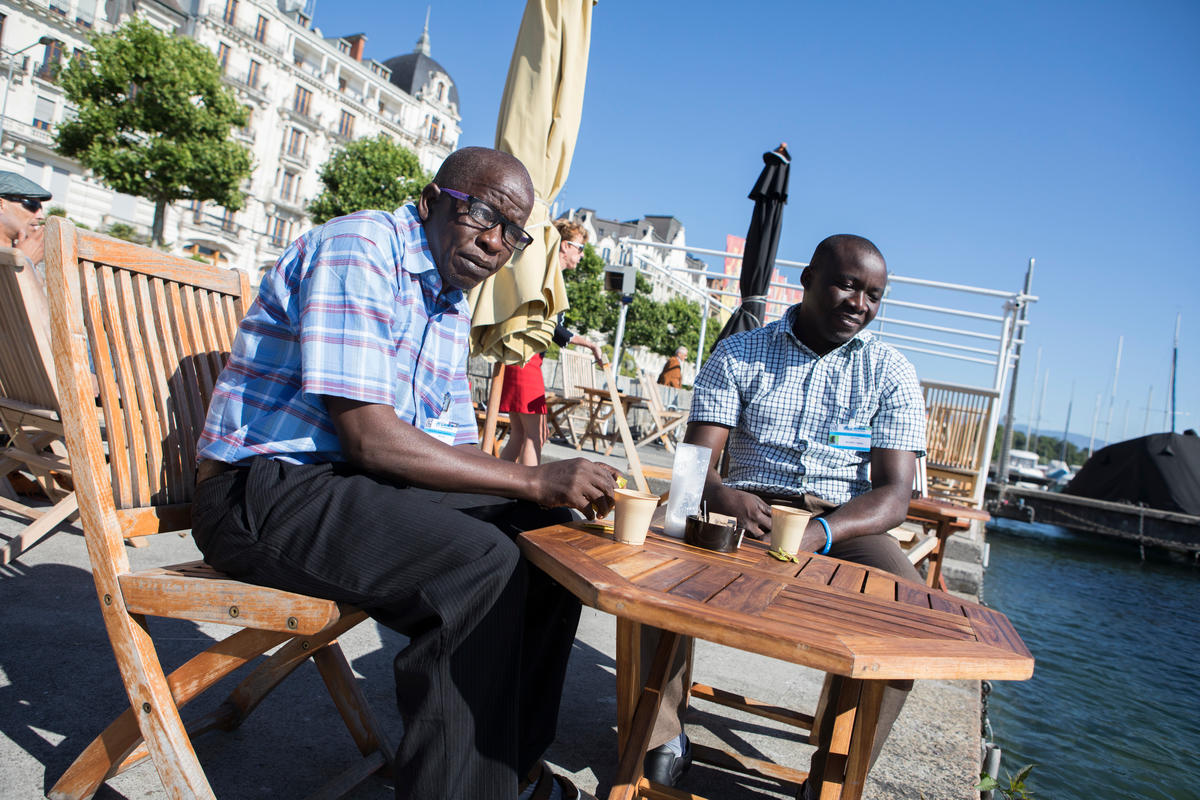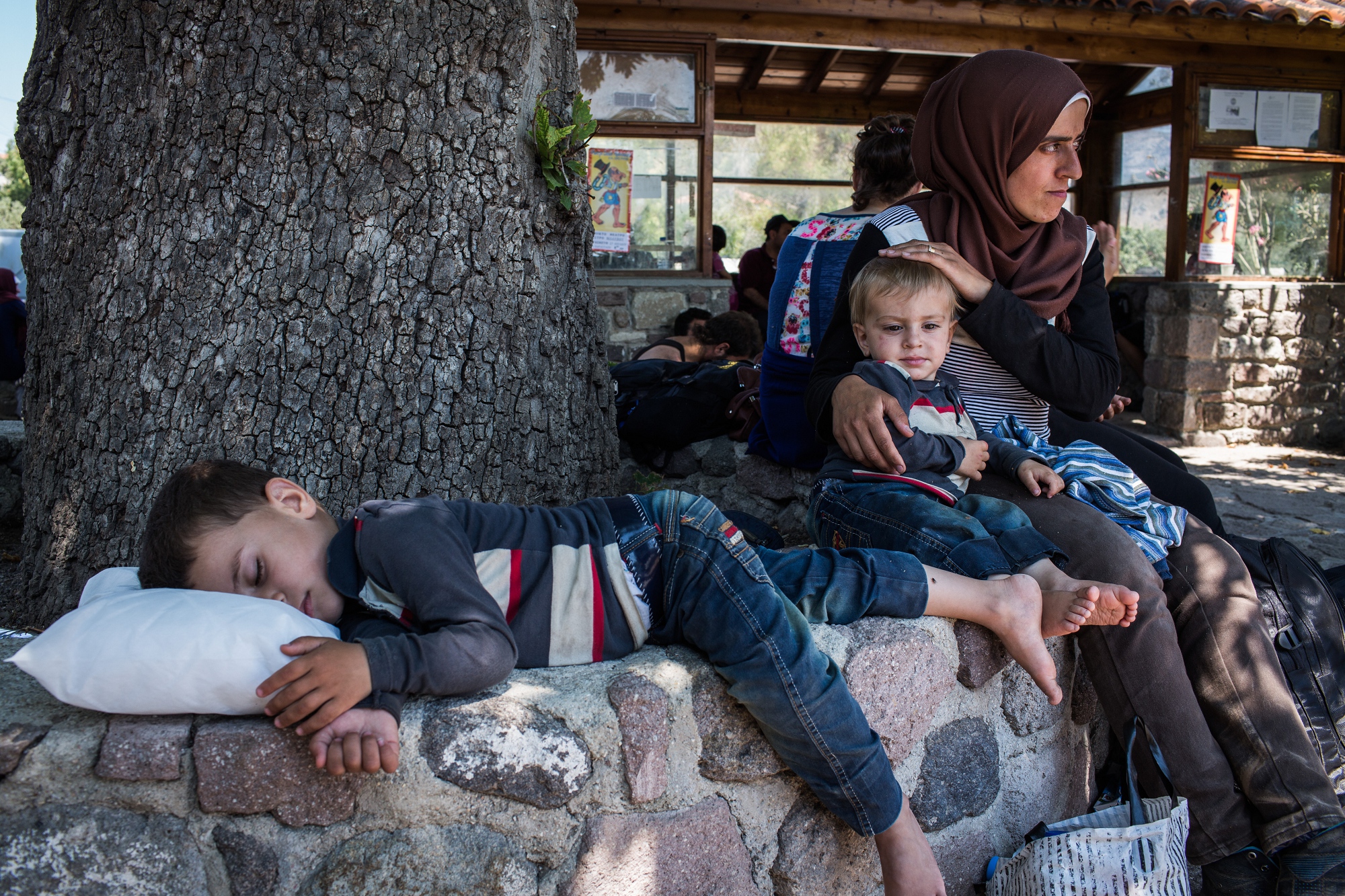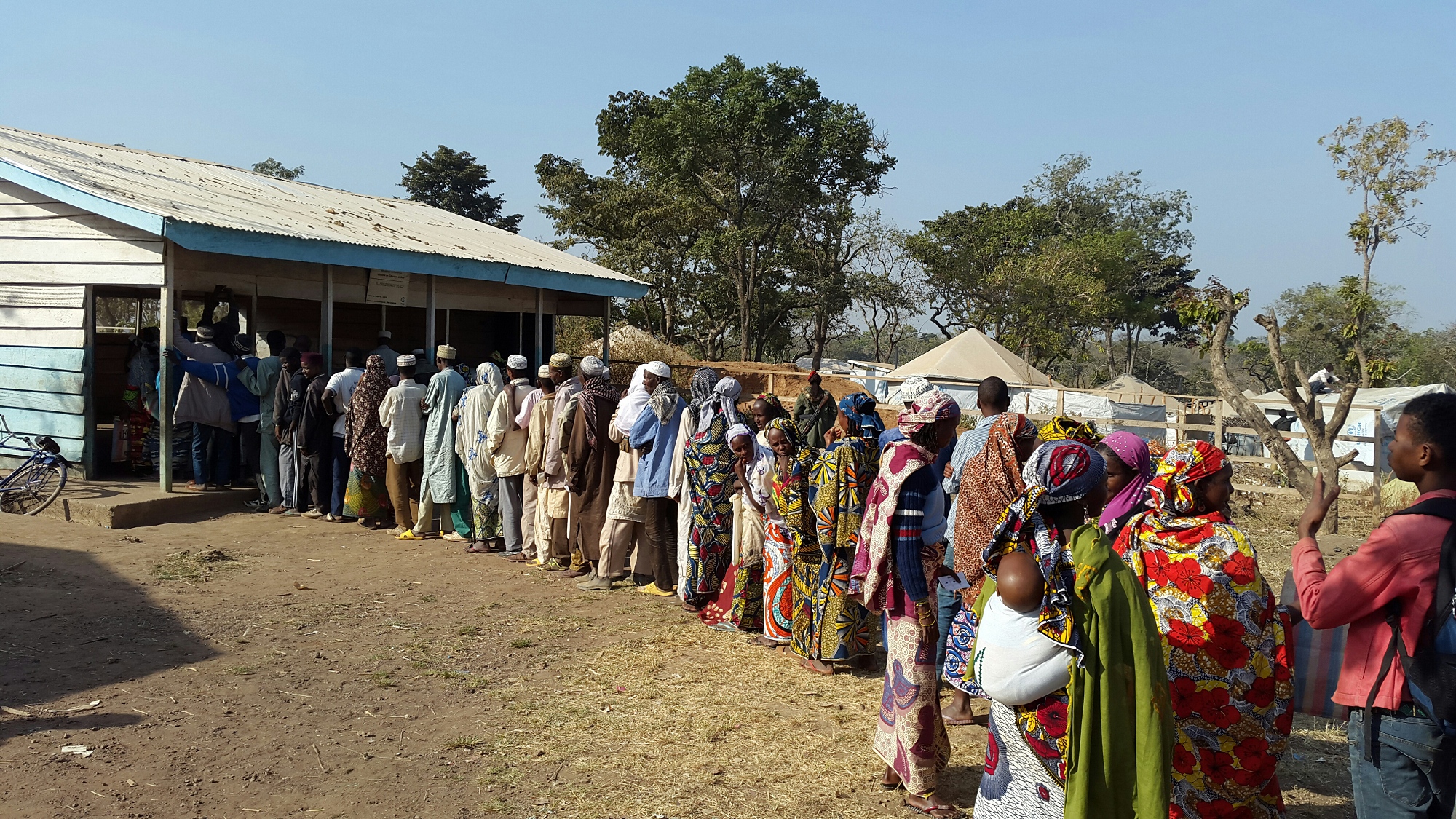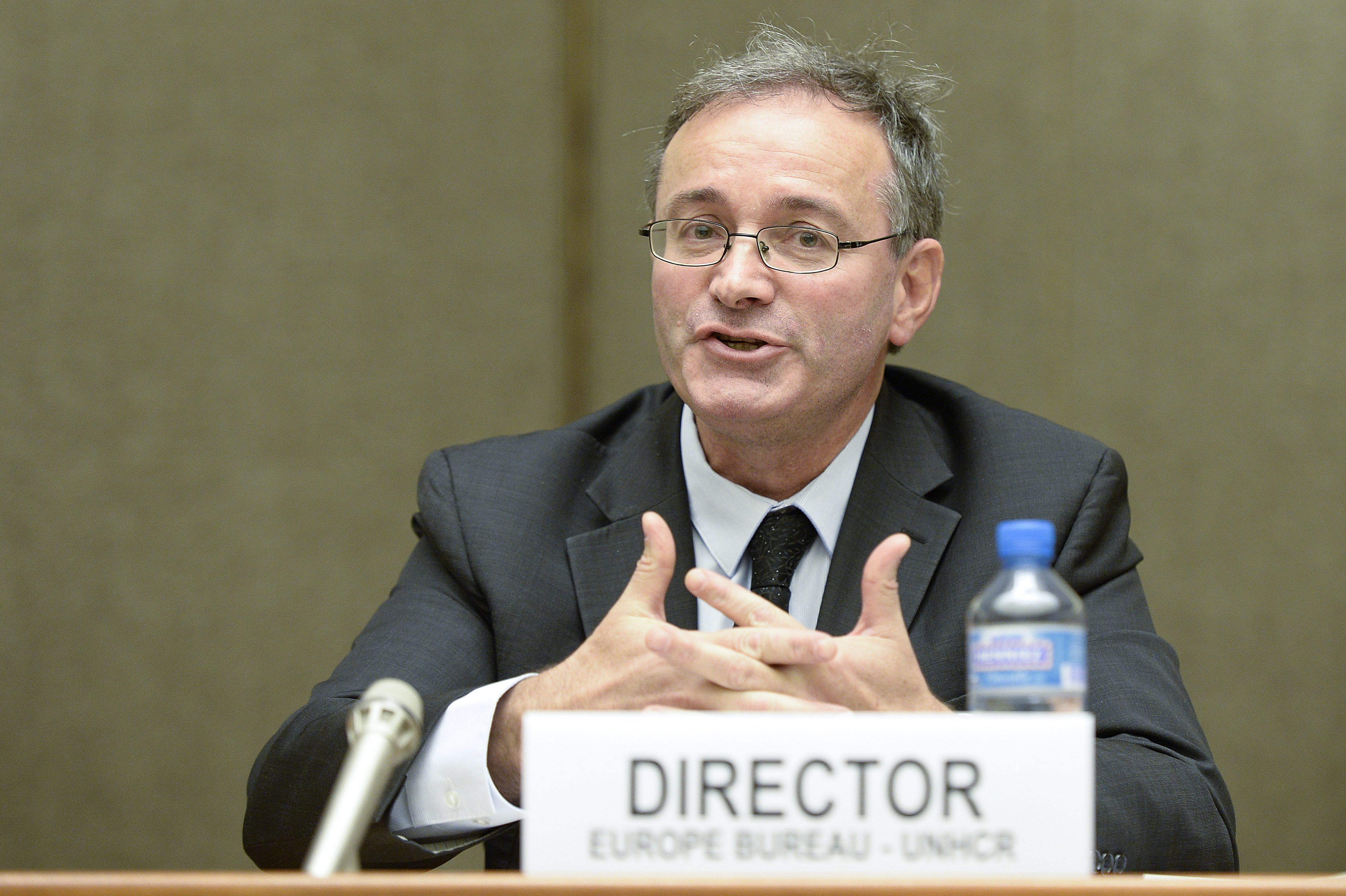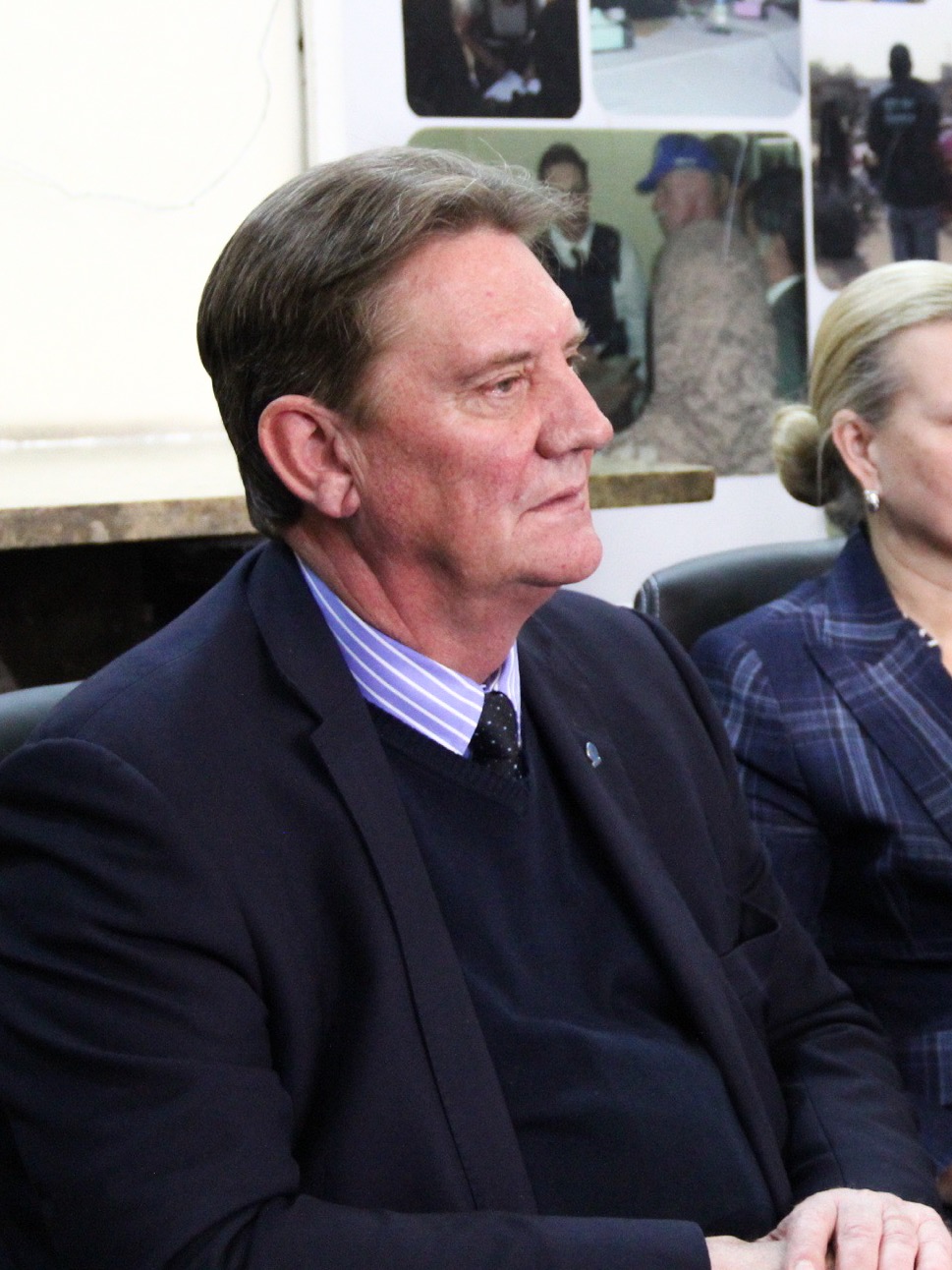Q&A: Prime Minister Pinda on Tanzania's Protracted Refugee Situation
Q&A: Prime Minister Pinda on Tanzania's Protracted Refugee Situation

GENEVA, December 19 (UNHCR) - The Tanzanian government has received plaudits from the UN refugee agency and others for its determined and enlightened bid to end the country's protracted refugee situation. The country is hosting substantial numbers of refugees from Burundi, Rwanda and the Democratic Republic of the Congo (DRC). Some of the Burundians fled to Tanzania in 1972 and most do not want to go back. Tanzania's Prime Minister Mizengo Peter Pinda was in Geneva last week as keynote speaker at the annual High Commissioner for Refugees' Dialogue on Protection Challenges, which this year focused on the major protracted refugee situations. He talked to UNHCR Web Editor Leo Dobbs. Excerpts from the interview:
Tell us about the refugee situation in your country
The refugee situation in Tanzania is slightly less of a burden than it was. Not that we don't have refugees, we do still have refugees. But because we have been living with this problem for a long time we have learnt how to deal with most of the basic problems.
In terms of numbers, we still have a lot. For example, the number of 1972 Burundians we are dealing with in three [so-called "old settlement"] areas has been reduced by quite a substantial number, but it is still close to 100,000-plus.... We believe we can deal with them [the refugees from Burundi, Rwanda and Democratic Republic of the Congo] if things go smoothly in their countries of origin.
The exercise of repatriating the refugees voluntarily depends to a large extent on the situation in the countries of origin.... If there is peace, people get encouraged; if there is no peace, people feel insecure and they cling to the countries where they have taken refuge. We are a bit more relaxed after striking understanding with Rwanda and Burundi. We still have a problem with DRC [there are some 80,000 Congolese refugees in Tanzania], but we are hopeful that this will also be settled if the international community and the countries of the region continue to work closely together.
We have accepted the principle of resettlement in Tanzania for those who say they still feel insecure or simply don't want to go back because they have been in Tanzania for too long. We have no quarrel with that, but it will definitely need a lot of donor community assistance to resettle them properly, effectively. It will make no sense if they are just dumped in some areas and told, "It's up to you, try to survive." We hope the international community will take that seriously so that those who decide to become citizens of Tanzania are at least assisted at the start of their resettlement.
Tell us more about the policy adopted last year to solve the protracted situation of the 1972 Burundians.
That policy simply gives room to the refugees to decide whether to go back home or stay in Tanzania. Not many have decided to go back - only 20 percent said they were ready to go back to Burundi. Eighty percent said they wanted to stay in Tanzania. I can understand why. Most of these are people who were born in Tanzania over the past 35 years or so. Many have been educated in Tanzania, many are doing business in Tanzania and some have acquired various skills in the country. None of them feels that they belong in the country of origin.
The only obstacle is ensuring that we resettle these people in a way that they don't feel as though they are being dumped. The thing that we ask of the international community is that it understand that we don't want these people to remain in the same camps - the old settlements.... Let them live in other communities, mix as much as possible with other Tanzanians. It may cause a bit of a problem in terms of trying to assist them, but we know our situation back home - it can be done if the idea is accepted.
It will depend really on how the international community responds to the approach that we are suggesting to them. We don't want them [the Burundians] to remain in the same areas because we don't want them to continue feeling like refugees. We want them to be integrated into society.
What challenges do you expect?
The first one is preparing the society where they are going to be integrated. We have to sensitize them so that they don't feel we are just forcing refugees on them.... You may encounter a situation where people are saying, "Oh, they are bringing criminals to our areas." So we have to prepare them [the locals], so that when these people [refugees] move into their areas we won't get the kind of stigma that could give us problems on the settlement policy.
The second challenge is the financing aspect. We have to assist these people, but we cannot do it on our own. We have to be helped by others in the international arena.... We will need a bit of time to prepare ourselves, so that we know exactly what the financial burden of moving these people will be. We are looking at about 10 regions scattered all over the country.... The financial aspect will definitely be a big headache for us and we will need some assistance in that area.
Is there support from the Tanzanian people?
I would say yes, because we have lived with these people for many years. The sensitization aspect of it is just to ensure that when you take someone to another place, the host village - or the host area - must be prepared. Not that we fear that there will be a refusal [to accept the refugees] - I don't think so. But you definitely need to make people [in the host areas] part and parcel of the project, so that they know exactly what is going to happen. This is important because, if the international community comes in to assist the refugees and we have not sensitized the locals, they may question why a foreign refugee is being helped and they are not. A local might say, "He's being given a good house, I'm just living in my old house.
Of course, we're not expecting to make the Burundians different from the community, but at least to give them the basics. For things such as education, health and social services, everyone will get the same access. It's getting them started that will probably concern us most.
How important is your relationship with UNHCR?
UNHCR has been quite important and we have worked well and closely with it. Unlike some other countries, such as Sierra Leone, we don't have a special national committee that deals with refugees. It's dealt with by the Minister of Home Affairs [Lawrence Masha], the government as a whole and UNHCR.
UNHCR has been a very good partner in helping to see what we can do with the refugees. UNHCR has been at the forefront of ideas to help refugees in their current areas. It has also played a key role in the repatriation exercise.
Why did you decide to come in person to the Dialogue?
I felt it was an obligation for me to come. The refugee problem is scattered all over the world, but we have been dealing with it for a pretty long time now. We thought sharing our experiences at a high level would send the signal to others taking part in the Dialogue that we, as a government, treat this issue very seriously and at a high level. And if the invitation had been extended to the President [Jakaya Mrisho Kikwete], I would have expected him to come because it's an issue that we give high priority to in terms of bringing peace and tranquillity to the region.
You believe there should be more burden-sharing in dealing with refugees. Tell us more.
I feel strongly that there is a tendency for the international community to think that this is the problem of the recipient countries. I think that's not right. The [refugee] conventions and protocols put an obligation on the host countries; once a refugee runs to another country, we cannot refuse this refugee. We say: "Yes, but let's apportion the burden between the country of origin, the host nation and the international community under the umbrella of the UNHCR." Dealing with the exodus from a country of origin and the ensuing problems should not be left single-handed to a government like ours, which is poor and needs assistance. So those conventions and protocols, we think, ought to be looked into so that we know exactly how we are going to share this burden.... We believe it is also possible to apportion part of the obligation on the country of origin.

